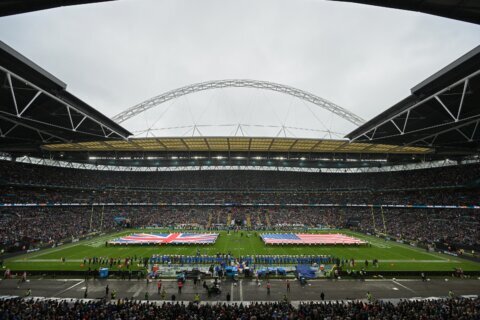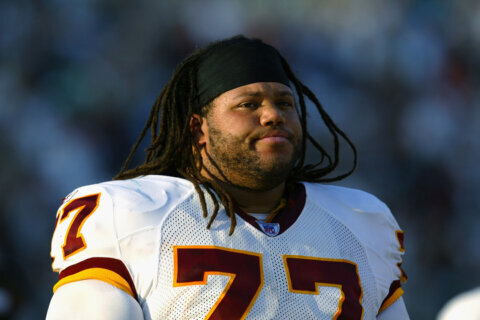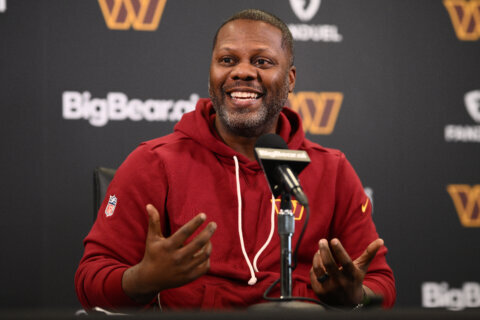The reaction has been generally mixed when it comes to the Washington Commanders’ new mascot, Major Tuddy.
In the past, lifelong fan Matt Winkler was a sports executive focused on marketing. Currently, he teaches at American University. He’s also a third-generation fan of the team.
Even with the new name, the Commanders is not a new team, and the fan base already identified with the franchise. So: Why do they need a new mascot?
“Sports mascots are to entertain and engage fans,” Winkler said. “They’re often geared to young fans, and developing young fans. That’s when a lot of fandom starts, is when you’re young and you like a team, and so the mascot has an identify component for younger fans for sure. They also add a little personality to the team.”
Since professional sports is also a business, there is also financial considerations to factor in.
“There’s certainly a huge revenue stream when you have this huge asset that you can promote, and lets face it, sell as well,” Winkler said. “Teams are always looking for additional revenue streams than the traditional ones that involve buying tickets, buying regular merchandise or watching it on television.”
The Commanders are not the first to introduce a new mascot. Winkler points to “Gritty,” who debuted a few years ago as the new mascot for the Philadelphia Flyers. An orange, hairy blob is hardly evocative of a franchise once known as the Broad Street Bullies. But it has apparently worked.
“When he first was introduced, people didn’t like it,” Winkler said. Over time, that changed. And he thinks the same thing could happen with Major Tuddy, too.
“Just everything surrounding the Commanders right now … they don’t have a great connotation,” Winkler said. “People are attaching the Commanders to their owner, who has a bad reputation. They’re attaching their lack of success the last 30 years. And let’s face it, sports is still a performance-based business, right? Winning does cure a lot of things. Not everything, but it sure cures a lot of things.”
From a marketing perspective, Winkler gives the team credit for winning off the field.
“They’ve done everything right from the business playbook,” he said. “Brand experts would certainly say, ‘Yes, these are all the things you need to do.’ Perhaps it’ll be a case study down the road.”








